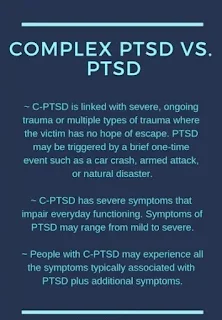.Many people look at survivors and think we wear survival like a badge of honor, a symbol of strength or resilience. They assume we’ve "overcome" the abuse and are now somehow better for it. But the truth is, surviving narcissistic abuse is anything but glamorous. It’s not a victory lap. It’s not an empowering slogan. Surviving is painful. It's messy, relentless, and exhausting. It's an ongoing battle with no end in sight, and each day feels like you're just barely making it through to the next.
Surviving means waking up every day to a fight that no one else can see. It means battling through the fog of depression, the weight of hopelessness, and the unshakable feeling of worthlessness. Each morning, we wake up and hope it’ll get better, only to find ourselves still knee-deep in the pain. There’s no "getting over it" when you’re trying to survive. There’s only getting through it, one agonizing day at a time.
Surviving isn’t a one-time thing. It’s not something you do once and then you’re done. It’s something you have to do over and over again. Every single day. There are no breaks, no timeouts, no pauses. You wake up to the same haunting thoughts, the same crushing emotions. The sadness, the fear, the anger they don’t just go away because you’ve left the abuser. In fact, the real fight begins after the abuse ends. That’s when the weight of everything you’ve been through crashes down on you.
People say, "At least you survived." But they don’t understand that surviving feels like an endless cycle of suffering. It’s a constant push to keep going when all you want is to let go. You endure the pain because you have to, because you know giving up isn’t an option. But that doesn’t make it any less excruciating.
There’s nothing glamorous about survival. It’s not a badge of honor; it’s a wound that never fully heals. Surviving means carrying the scars of the abuse with you wherever you go. It means fighting through the darkness when your mind tells you there’s no point, that you’re worthless, that you should just give up. It means resisting the urge to fall into despair, to give in to the suicidal thoughts that creep in when the pain feels too heavy to bear.
The world doesn’t see the endless mental battles, the countless times you’ve felt like you’re drowning in your own mind. They don’t see how you have to force yourself out of bed when your body feels like lead, how you have to fake a smile when all you want to do is scream. They think surviving is an achievement, but surviving feels like walking through fire every day, with no promise of ever being able to put it out.
Surviving narcissistic abuse means living in the aftermath of a war that has no end. It means enduring flashbacks that drag you back into the moments of abuse, reliving the manipulation, the gaslighting, the lies. It means constantly questioning yourself, doubting your worth, and wondering if you’ll ever feel whole again. It means carrying the weight of shame and guilt that doesn’t belong to you, but was placed on you by the narcissist.
You try to rebuild, but everything feels fragile. Your sense of self, your confidence, your relationships they’re all pieces of you that were shattered by the abuse, and now you’re left trying to piece them back together. But surviving doesn’t come with a manual. There’s no easy path, no shortcuts. It’s just pain, day in and day out, hoping that eventually, it will ease.
Surviving Isn’t Strength It’s Endurance. People often equate survival with strength, but surviving isn’t always about being strong. Sometimes, surviving is just about not giving in. It’s about enduring the pain, not because you feel strong, but because you have no other choice. You get through the day because there’s no alternative, because even though everything hurts, you refuse to let the abuse be the end of your story.
But that doesn’t make it easy. Surviving is lonely, isolating, and terrifying. There’s nothing noble about waking up every day in a fight for your own mind. There’s nothing empowering about feeling like you’re one step away from breaking, from losing yourself entirely to the pain. Surviving means doing whatever it takes to make it through the day, just to do it all over again tomorrow.
Surviving is painful. It’s not some grand, triumphant journey. It’s brutal, raw, and relentless. Each day is a test of endurance, and the pain doesn’t magically go away just because you’ve made it through another one. You’re constantly caught between the need to keep going and the overwhelming desire to just stop. But even in the midst of all that pain, you keep going. You keep surviving.
There’s no finish line to survival. There’s no moment where you suddenly "win" and all the pain disappears. It’s a continuous process of living through the hurt, carrying it with you, and finding ways to survive it. There’s nothing glamorous about it, but somehow, despite all the pain, you do it anyway.
Because surviving is painful but you’re still here. You’re still surviving. And that, in itself, means something, even if it doesn’t always feel like enough.








.jpeg)
.jpeg)





.jpeg)
.jpeg)
.jpeg)



